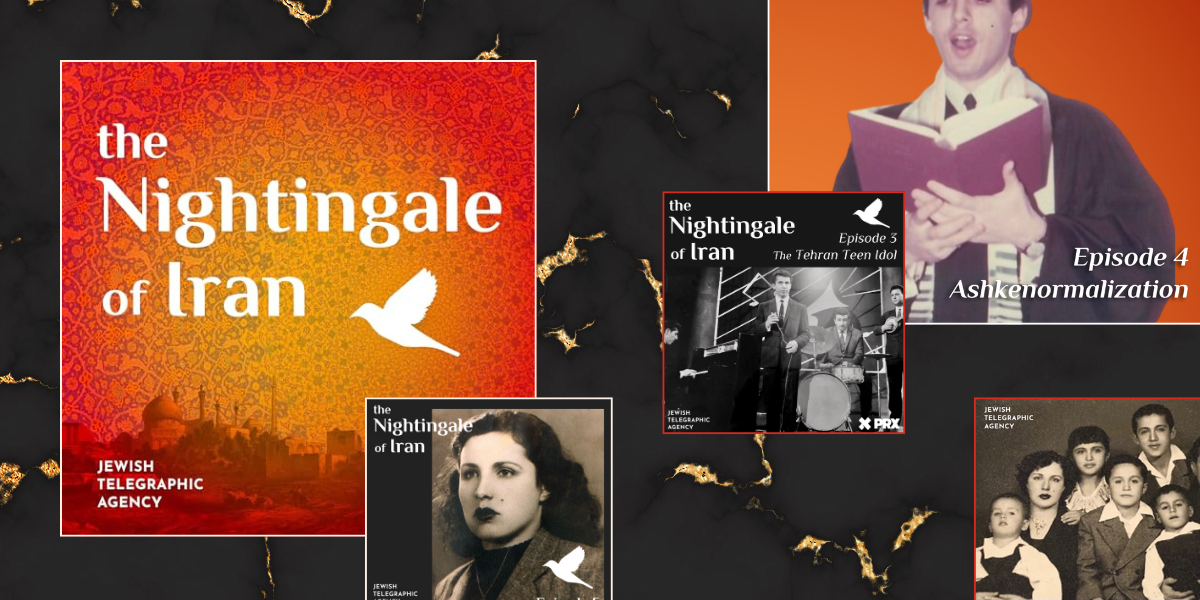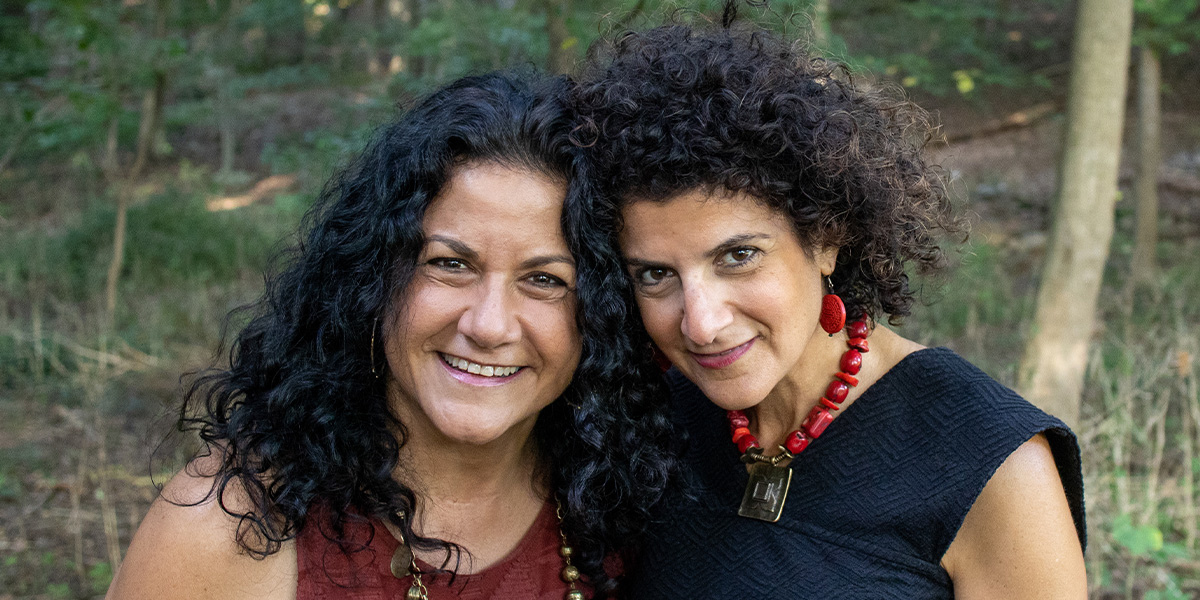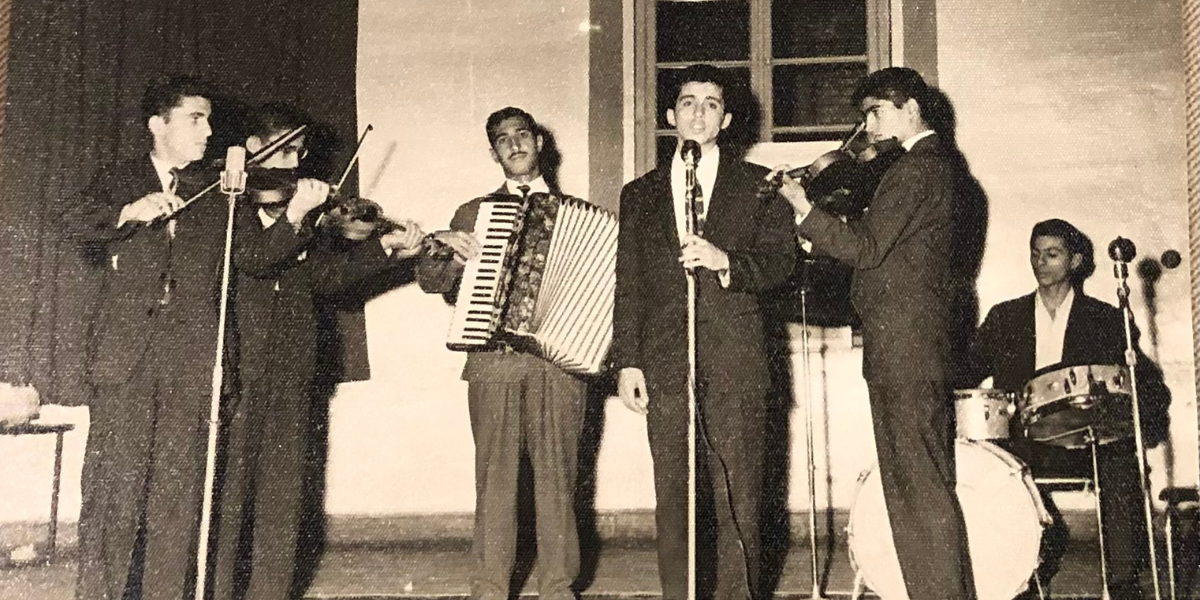Arts
A New Podcast Unravels a Persian-Jewish Mystery

Danielle, Galeet and Michelle Dardashti were born into a “mixed” Jewish family; their mother is Ashkenazi and their father, Persian. Throughout their childhood, however, their Persian heritage received short shrift. Three years ago, Danielle, a storyteller and Emmy Award-winning documentary producer and journalist, and Galeet, a singer, composer and anthropologist focusing on Middle Eastern culture, set out to answer their questions about their ancestry.
Why didn’t their Grandfather Younes, a renowned singer in 1950s and 1960s Iran dubbed “The Nightingale,” continue his musical career after he made aliyah in 1967? Why did their father, Farid, leave behind his singing stardom in 1960s Iran to pursue a career in architecture in the United States? And why did he become an Ashkenazi cantor, leading services at Conservative synagogues?
Other questions emerged when Danielle found a treasure trove of recordings in the basement of their parents’ home in New Rochelle, N.Y.
Growing up, the sisters were part of a family band, A Dash of Dar-dashti, with their parents. They sang in about a dozen languages, including Greek, Hebrew and French, at synagogues and Jewish festivals in the United States and Canada. However, Persian songs were absent from their repertoire.

Danielle and Galeet have turned their quest to understand their Persian heritage into a compelling six-episode podcast, a saga titled The Nightingale of Iran that slowly unfolds as a multigenerational quest for identity and belonging. (Michelle was not involved in the podcast as she had just started as rabbi of Kane Street Synagogue in Brooklyn.) Recently named Best Podcast of the Year by the Quill Podcast Awards, the podcast captures the sweet family life—at times loving and funny, at times emotional and painful—that courses through audio clips dating back to 1959 and emerges in interviews with relatives and friends. These are augmented by conversations with guests, including experts on music and Middle Eastern history.
“I’m listening in like a time traveler, like a fly on the wall,” Danielle, 53, comments in an episode about the recordings. “I’m shocked how clearly I can hear these voices from the past.” Perhaps most enthralling are the clips of their grandfather’s glorious voice trilling the classical Persian tahrir that sounds almost like the broken cries of a shofar, their father’s youthful voice and, later, his magnificent cantorial renditions.
“Non-Ashkenazi stories have been left out of the mainstream for so long in North America, to the point that people forget that there were very important Jewish cultural figures in other places in the world,” Galeet, 50, said in a Zoom interview.
The podcast is not only a family story describing their once-famous grandfather, who died in 1992, and their father’s choice to assimilate into Ashkenazi Jewish culture. The sisters also reveal how marginalization and pain were embedded in Iranian Jewish society even during the Pahlavi dynasty (1925 to 1979), which Galeet explained was considered a golden age for Jews in the country.

The sisters are both married with children and live in White Plains, N.Y. Because of Galeet’s musical and professional immersion in Middle Eastern culture, she has been the most connected of her sisters to their Persian heritage.
But for Danielle, the rediscovered recordings and interviews have been a “huge exploration. Unearthing the tapes was like an archeological dig.”
One emotional highlight was their interview with Habib Partow, a Muslim and a former wrestler who now lives in New Jersey and who had been their grandfather’s friend in Iran.
“Habib ran with his laptop to show us the photo of our grandfather that still hangs on his refrigerator,” Galeet recalled. “He sobbed five times during our call.”
For Danielle, it was the mundane recordings that struck a chord. In one, her grandmother, then 38, is showing off the Hebrew—“Ani…ohevet…at”—that she learned at the “cloob” in Tehran, which was like a Jewish community center. She then laughs at herself because she knows her Hebrew for “I love you” isn’t correct.
“It was like I was there in the room with them,” Danielle said.
Rahel Musleah leads in-person and virtual tours of Jewish India and other cultural events. To learn more, visit Explore Jewish India.










 Facebook
Facebook Instagram
Instagram Twitter
Twitter
E. Benshetler says
This was an amazing story. I spotted it in my wife’s copy of the magazine yesterday, and the name Habib Partow leapt out at me. I worked with Habib many years ago at Sperry Univac in software development when I was just starting out. He was one of the kindest and most supportive people I ever worked with… and probably in the best shape! When the Iranian revolution happened a couple years later, I realized how many decent people like Habib had a wonderful middle-class existence snatched away. Hopefully I’ll be able to reconnect with him soon. Thanks for writing this story, Rahel. I plan to listen to the podcast about the Dardashti family’s amazing story.